- Home
- Vicki Delany
Gold Digger: A Klondike Mystery
Gold Digger: A Klondike Mystery Read online
For my children, Caroline, Julia, Alex
Chapter One
“Bloody hell,” Angus said.
For the first time in his life, I didn’t reprimand my son for swearing.
He had been in his room, sitting up in bed and concentrating on his school book, when I’d knocked and entered. I tried not to notice the penny-dreadful concealed in the folds of the geography tome.
“I have to go to the Savoy,” I said as he stuffed the book under his pillow. “I might have made a mistake in the ledger, and I want to check.”
“Can’t it wait until tomorrow?” “It can. But I can’t. Do you want to come with me?” “Sure.” In this town, I didn’t need a protector to walk the streets after dark (or at least what passed for dark), but I wanted my son’s company. He’d been distant of late. Growing up, probably. It had to happen, someday, but I intended to hold the forces of nature back as long as humanly possible.
Angus took my arm as we walked. It was a Sunday in June of 1898, and the town of Dawson, Yukon Territory, was as orderly as an orphanage expecting an imminent visit from Lady Bountiful. The streets were quiet; most people were at home resting after their evening meal. If they were lucky enough to have a home. And a meal.
I opened the front door of my business, and we walked in. The floorboards creaked beneath our feet. The Savoy saloon and dance hall, my pride and joy, the self-proclaimed “Finest establishment West of London, England”, was as silent as the grave. It looked rather sad, empty and abandoned. In a moment of excessive fantasy, I imagined the boards of the stage wondering where the dancers with their stomping feet had gone, the rows of whisky bottles complaining to each other that no one was enjoying them, and the roulette wheel twitching under the forced inaction.
I called to the watchman. “Hello. It’s only me! Mrs. MacGillivray.”
The front windows were small and always dirty, despite Mrs. Saunderson’s attempts to keep them clean. Outside it was daylight, but in the saloon the shadows fell long and deep.
“Light the lamp,” I said to Angus. “That watchman had better be around here somewhere. Hello?”
An oil lamp flared into life at the same time as the watchman stumbled out of the room off the bar that served as a kitchen and broom closet. He fastened his belt with one hand, wiped sleep out of his eyes with the other, and tried to stifle a yawn. I had recently taken on the man only because he was such a tough looking fellow, complete with broken nose and bulging muscles and tattoos running up his arms. The rest of the week he hired himself out for manual labour.
“Seems to me as if this would be a nice job you have here,” I said now. “No customers to please, no heavy lifting. Earn an extra day’s pay over a Sunday.”
“Yes, m’m,” he mumbled, finding the notch in his belt at last.
“My partner, Mr. Walker, or I will be dropping by every Sunday. I expect you to be checking us out before the door is fully opened.”
“Yes, m’m.”
“Good. I’ll be upstairs for a few moments.”
“M’m?”
“Yes?”
“Thank you.” He shuffled off to the back rooms.
Angus watched him go. “Why didn’t you fire him, Mother? You know he was asleep.”
“He won’t be sleeping on the job again. I’ve put the fear of God, or at least of myself, which is probably just as good, into him. I’ll mention it to Ray tomorrow. Between us we’ll drop by a few times over the next couple of Sundays.”
Angus lifted the lamp. Shadows danced off his cheekbones. I started for the stairs.
A door crashed open with so much force it almost came off its hinges. A chair fell over, and the loud snap of the breaking of a wooden leg echoed through the room.
I whirled around to see the watchman standing in the doorway to the gambling rooms, bent half-over, holding his stomach and gasping for breath. As Angus and I stared at him, he vomited.
“Bloody hell,” Angus said. “Don’t swear, Angus.” The man raised his head and wiped his hand across his mouth. His eyes were wide and frightened.
Avoiding the lumpy brown and yellow puddle, swallowing my gag instinct, I grabbed him by the shoulders and tried to straighten him up so he could look at me. “What’s the matter with you?”
He pointed behind him and, with a low moan, vomited again. Fortunately, there wasn’t much remaining in his stomach, and I was able to dance out of the way.
I ran through the door, aware of Angus following me. Nothing in the gaming room. The roulette wheel stood still, the poker table deserted.
The dance hall was a big room with no windows. The corners were full of shadows cast by the dim remnants of light coming in from the street through the saloon, then the gambling room and into the dance hall.
Angus lifted his lamp higher. I sucked in my breath.
“Bloody hell,” Angus said, and I did not reprimand him.
A dark shape lay across the stage. It had form and substance and weight.
We took a step forward. It didn’t move.
Angus reached out one arm to stop me. “No, Mother. Don’t go any closer.”
“This is my property, dear, I have to.”
The man lay on his back, leaning slightly to the right side. He was neat and properly dressed with short red and grey hair. A wide streak of dried blood, resembling lip rouge applied by a nearly-blind dowager countess momentarily abandoned by her lady’s maid, dripped from the corner of his mouth, across the side of his face, coming to rest in a dark pool on the wooden boards of the stage.
Why does he have a red silk ribbon wrapped around his throat? I thought.
My brain soon cast off the uncomprehending fog thrown up by my protective unconscious. And my gaze travelled down the body, avoiding the empty, staring eyes and the viscous gash across the neck. The front of his suit, the neat waistcoat, the place where the pocket watch used to be, was dark with blood. But the blood was no longer running, and there wasn’t a great deal of it, much less than had dripped across his throat and splattered into the boards of the stage.
“Mother. Mother. Look at me, Mother.”
I looked. My son’s beautiful face stared into mine. He had lowered the lamp, and more dark than light filled the space between us. “Are you all right, Mother?”
“Go for the Mounties. I’ll wait in the saloon.”
We clutched hands and backed out of the dance hall together, not wanting to turn our backs on the thing lying on the stage.
“Someone murdered Mr. Ireland,” Angus said. “That can’t have been an accident.”
I’d also recognized the face: Jack Ireland, who’d caused me nothing but trouble since the moment he’d arrived in town. The Mounties would have their job cut out for them: once they’d eliminated the handful of people who didn’t particularly want Ireland dead, they’d be left with the majority of the population of the Territory.
Chapter Two
The day I first made the acquaintance of the odious Mr. Ireland had started off rather well. I’d been in my office doing the books, my least favourite task, when Ray Walker, bartender, chief bouncer, my business partner, had stuck his head through the door. “Morning, Fiona. Good night?”
I put down my pen. “Of course.” I turned the ledger so Ray could read the bottom line.
He whistled softly. “It’s Irene, ye ken. She brings the customers in and keeps them here.”
“Worth her weight in gold.” I tucked the big book into the desk drawer and lifted a hefty sack of gold dust off the floor to illustrate my point. Irene Davidson, Lady Irenee, she called herself—pronouncing the name in the French way with an extra “e” on the end—was, this month at least, the most popular dance hall girl in to
wn. Since she’d started working for us a few weeks ago, our nightly take had gone up considerably.
I didn’t care for the way Ray caressed her name, rolling over the “r” in his rough Glasgow burr, the look on his face as he watched her sashay across the room, or how he talked about her at every opportunity that presented itself. It’s never a good idea for the boss to get involved with the hired help.
“What brings you here so early?” “Couldna sleep any longer. Decided I should be doing something more worthwhile than staring at the ceiling. I’ve got a new lad starting on the faro table today. Needs someone to keep an eye on him.”
I put my pen down and rubbed at my fingers, stained blue with ink. “I’m going home after I drop this lot off at the bank.”
Ray held the door open for me. He was a particularly unattractive man with a nose that had been broken more often than probably even he could remember and skin ravaged by youthful acne. What little remained of his brown hair fell to his collar in thin, greasy strands. Short and scrawny to the point of emaciation, over the long, harsh winter Ray had looked like everyone else in town. But while the rest of us filled out as soon as supplies began to make it through, Ray didn’t gain an ounce. His brown eyes shone with a warm intelligence, and I both liked and trusted him. Maybe not with my life or the life of my son, but enough to accept his much needed help in running the Savoy. I’d never operated a business before, with hired help and premises and stock and all those complications. My work had always been more…personal.
I put on my hat, a plain but charming straw affair with a broad plum ribbon around the band, and left the office, lugging a bag of gold, highly pleased with the weight of it. Gold, dust as well as nuggets, was as much of a currency as money. And often more readily available. Everyone from the dance halls to the banks to the laundries and the Paradise Alley cribs dealt in gold dust.
As I descended the stairs, I could see men behind the bar, serving hard-toiling miners and general layabouts who’d spilled through the door the minute we’d opened for business. Ten in the morning, and clearly some of the customers had merely stumbled the few feet from a neighbouring bar. The door at the back of the saloon leading to the gaming rooms was open, and the roulette wheel clattered cheerfully.
I’d named it The Savoy after the luxury hotel that opened in London during the most productive years I’d spent in that city. I had enjoyed more than a few teas and suppers in that wonderful place with the wealthy and influential men who, not always willingly, had provided my livelihood.
“Mrs. MacGillivray!” One of the drunken sourdoughs caught sight of me and lurched across the room. The scent of rotting teeth and bad liquor (most assuredly not mine) washed over me. “Come ’ave a drink.”
“Thank you, sir, but I have errands I must run.” I gave him a smile into which I tried to insert a touch of regret.
Once outside, I stood on the step for a moment. The wind had picked up, and the sea of banners strung across Front Street, advertising doctors and dentists, dance halls and ladies’ clothing, men’s hats and laundry services, flapped and fluttered, making as much noise as ocean waves hitting a rocky shore in a storm. The Union Jack and the American flag with its thirty-eight stars competed for prominence, the latter a sign that the ownership of the Yukon Territory was still a matter of dispute. Occasionally a banner or flag tore loose and blew away, to lie forgotten in the mountains or sink into the river, there to decay and merge into the barren landscape. To the north, Moosehide hill loomed over town, the remains of an ancient rockslide that had long ago taken an enormous chunk out of the side of the mountain.
Summer in the Yukon is delightful. The ground might be a morass of mud and the countryside reminiscent of what a mountainside would look like after a volcanic eruption, but after breathing the coal smoke of London and Toronto, I appreciated the fresh, clean air and the view that stretched for miles. Although the amount of sawdust thrown into the air, as the forest was chopped down and turned into lumber occasionally hindered one’s breathing, I often thought that I could simply stand here on my front step all day long, sniffing at the air and watching the clouds passing across the wide sky.
The winter recently finished I’d decided never to think about again. It had been followed by a spring of such heat that it was difficult to believe that one single place on Earth could offer such a range of temperatures.
The hills across the wide Yukon River were touched with mist, and for some reason they reminded me of my home in Scotland. Last seen so long ago.
Enough of sentiment. I walked down the street, heading for the bank, then home for a nap. It was my custom to leave the Savoy when it closed at six in the morning and catch a bit of sleep. At nine, I’d return to work on the books, supervise the opening of the bar at ten, and take the night’s earnings to the bank. Back home again for a bit more sleep before going to the Savoy at four to oversee preparations for the evening. If things weren’t too hectic, I’d be able to have supper with my son prior to changing into suitable evening wear, returning to the Savoy before things got lively at eight when the dance hall performances began.
It made for a hectic schedule and not a lot of sleep. But gold rushes don’t come along all that often, and I’d sleep once I’d made all the money I could out of this town.
It would be nice to be able to spend more time with Angus, but at twelve years of age, the boy didn’t particularly want to spend time with his mother anyway.
It had rained during the night, and Front Street was more like a river of mud than a proper city street. Foolishly, the town had been built on a swamp; after a good, hard rain, the muck could reach a tall man’s knees. Planks had been laid down to make a rough sort of sidewalk along one side of the street, but sometimes they got so crowded that men would prefer to step off and take their chances with the mud. The result, of course, was that the floors of every boarding house, shop, government office and dance hall were caked with wet and drying mud—which could be expected to consist of more than just good Yukon earth, as horses and half-tamed dogs also filled the streets. Laundries did a lucrative business, and Helen Saunderson, the Savoy’s maid-of-all-work, spent a substantial part of her day mopping.
A wagon stuck axle-deep in the sludge held up traffic. The horse struggled against its unyielding burden, neighing in panic, sinking deeper and deeper. His round white eyes stared for a moment into mine.
I looked away.
After attending to the banking, I made my way home. I’d rented a couple of rooms in a boarding house on Fourth Street near York, which was, a year ago, on the outskirts of town. A tiny bedroom for Angus, an even smaller one for me, and a cramped sitting room where my son could do his school work in the evenings and I, on Sundays when the Savoy was closed, could read or simply enjoy a moment of peace.
I shook the sawdust off my pillow, as a light sheen had accumulated since I’d left my bed only three hours before, and I washed my face and hands in the cool, fresh water Mrs. Mann, the landlady, had left in the basin on the dresser. I hung my hat on the hook behind the door, pulled my day dress over my head, unlaced my corset, dropped it to the floor to join dress, stockings, over-corset, drawers and petticoats, and crawled into bed. I fell asleep to the sound of hammering from the property next door. Someone was squeezing an addition onto a house that was already falling over because it had been so badly erected a year before.
Chapter Three
Angus MacGillivray, overflowing with as much enthusiasm as a puppy watching his owner pick up a ball, bounced through the door of the tiny town detachment on Third Avenue.
“Good morning, sir.” He stood to attention in front of the desk, his arms stiff at his sides, spine straight, eyes facing directly forward.
Constable Richard Sterling of the North-West Mounted Police looked up. “Morning, Mr. MacGillivray. What brings you here this early?”
Angus’s face fell and his shoulders slumped; the puppy’s owner had taken the ball and gone inside. “You said I could come on your
rounds with you today. Don’t you remember? Sir?”
“Oh, right.” Sterling could never decide whether he should be encouraging the lad’s interest in the Mounties, with the aim of turning the fatherless boy into a productive citizen, or discouraging the somewhat annoying heroworship. “Give me a couple of minutes to finish this report.”
Angus perched on the edge of the only spare chair in the small room as Sterling bent his head to concentrate on the paperwork. “What’s your report about, sir?” The boy’s blue eyes shone with anticipation. A lock of too-long blond hair fell over his forehead. Angus’s huge feet were planted so solidly on the floor that no one else would be able to squeeze into the room. Must cost his mother a fortune in footwear, Sterling thought. Not to mention food. The fair, sturdy Angus looked almost nothing like his dark, fineboned mother: only the generous mouth and strong chin suggested a contribution by the maternal genes.
“My report? A theft. A sourdough befriended a Yankee newcomer who’d passed out from drink, and when the Yankee woke up, he stole the old-timer’s mining gear.”
“Did you catch him?” “Oh, yes,” Sterling said, with a touch of satisfaction.
“Fool went to the nearest supply store to sell the goods. Harold contacted us straight away. He, the Yankee, not Harold, will be contributing to the warming of the constabulary this winter.” Police resources were so limited in the Yukon that there were only two punishments meted out for miscreants: a blue ticket expelling one permanently from town or a time in custody chopping wood for the ravenous NWMP stoves.
A steamship whistle blew out on the river. Sterling stood, picked up the distinctive broadbrimmed, pointed hat, and placed it properly on his head. “Time to go. Not a lot happening this early in the day.
The real action gets going around midnight.”
“Yes, sir.” Angus leapt to his feet, all awkward arms and gangly legs.
They walked down to the waterfront as the steamship Queen Victoria pulled into the makeshift harbour. The port, such as it was, consisted of not much more than rows of boats pulled up onto the mud flats and tied together. In an attempt at some sort of civility, a few planks had been laid to the steamships.

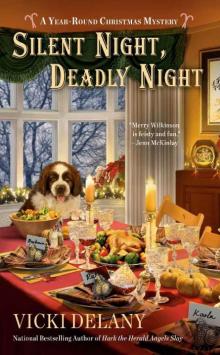 Silent Night, Deadly Night
Silent Night, Deadly Night Coral Reef Views
Coral Reef Views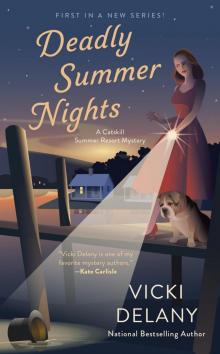 Deadly Summer Nights
Deadly Summer Nights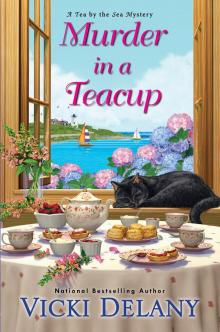 Murder in a Teacup
Murder in a Teacup Whiteout
Whiteout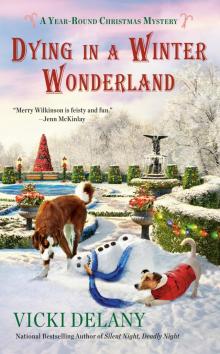 Dying in a Winter Wonderland
Dying in a Winter Wonderland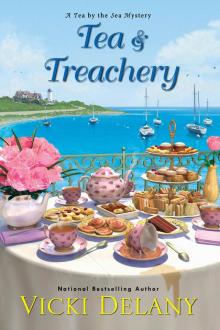 Tea & Treachery
Tea & Treachery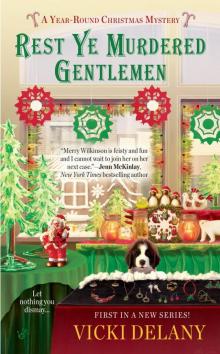 Rest Ye Murdered Gentlemen
Rest Ye Murdered Gentlemen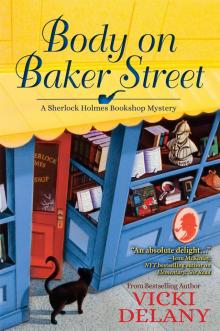 Body on Baker Street: A Sherlock Holmes Bookshop Mystery
Body on Baker Street: A Sherlock Holmes Bookshop Mystery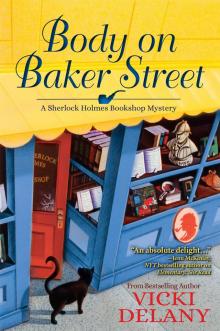 Body on Baker Street
Body on Baker Street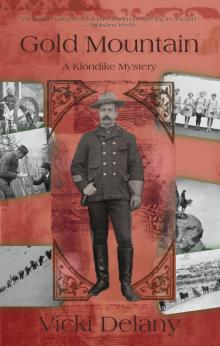 Gold Mountain
Gold Mountain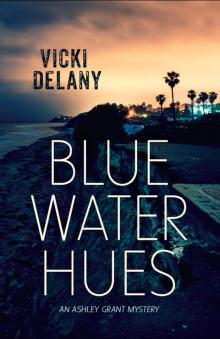 Blue Water Hues
Blue Water Hues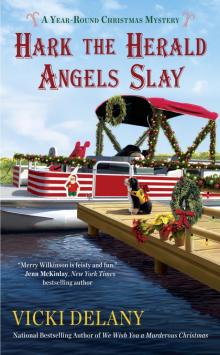 Hark the Herald Angels Slay
Hark the Herald Angels Slay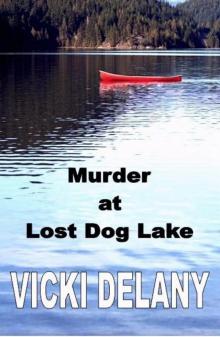 Murder at Lost Dog Lake
Murder at Lost Dog Lake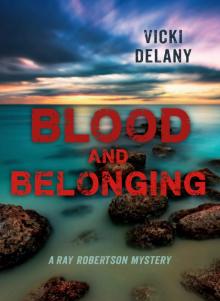 Blood and Belonging
Blood and Belonging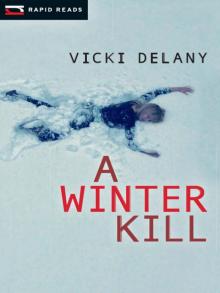 A Winter Kill
A Winter Kill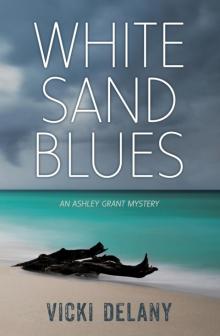 White Sand Blues
White Sand Blues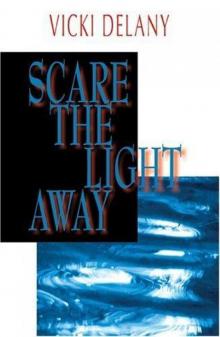 Scare the Light Away
Scare the Light Away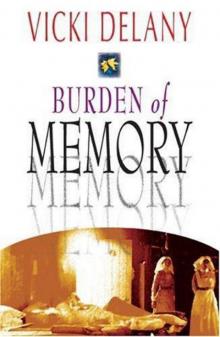 Burden of Memory
Burden of Memory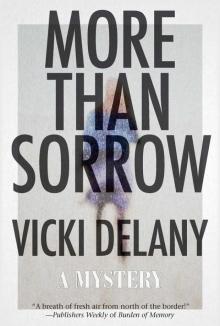 More Than Sorrow
More Than Sorrow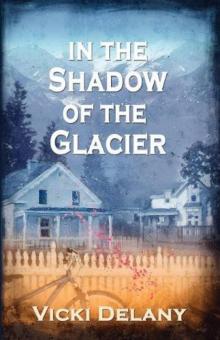 In the Shadow of the Glacier
In the Shadow of the Glacier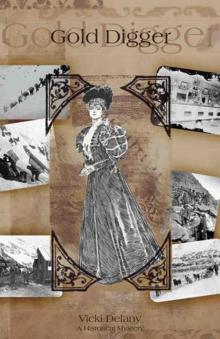 Gold Digger: A Klondike Mystery
Gold Digger: A Klondike Mystery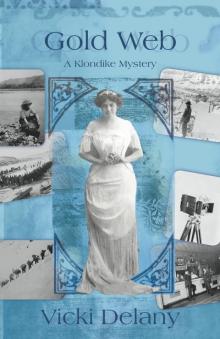 Gold Web
Gold Web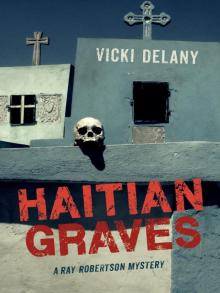 Haitian Graves
Haitian Graves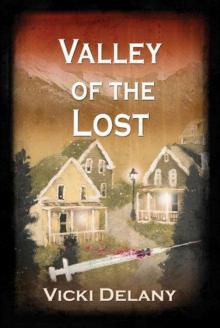 Valley of the Lost
Valley of the Lost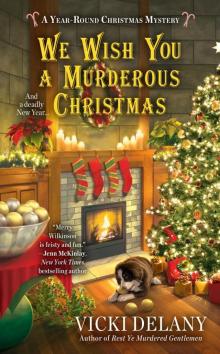 We Wish You a Murderous Christmas
We Wish You a Murderous Christmas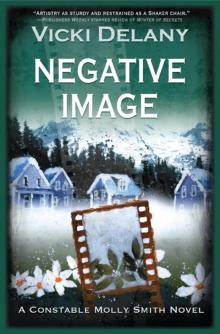 Negative Image
Negative Image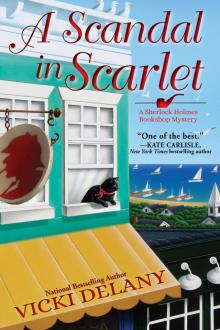 A Scandal in Scarlet
A Scandal in Scarlet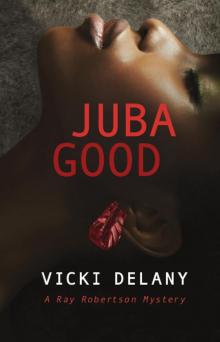 Juba Good
Juba Good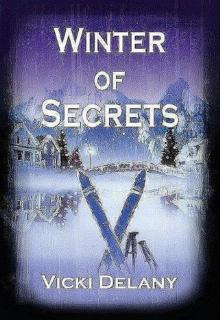 Winter of Secrets
Winter of Secrets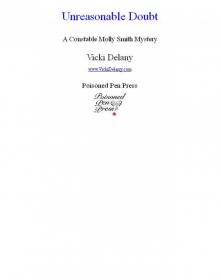 Unreasonable Doubt
Unreasonable Doubt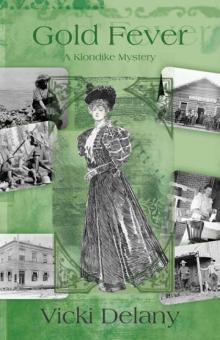 Gold Fever
Gold Fever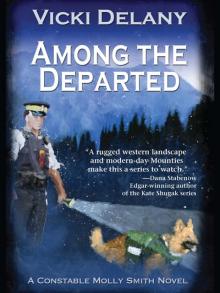 Among the Departed
Among the Departed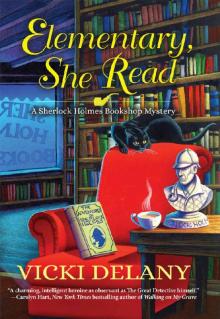 Elementary, She Read: A Sherlock Holmes Bookshop Mystery
Elementary, She Read: A Sherlock Holmes Bookshop Mystery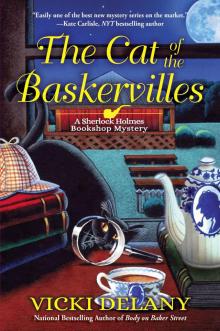 The Cat of the Baskervilles
The Cat of the Baskervilles